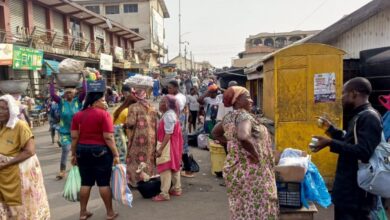Asantehene Champions Agricultural Revival as Key to Ghana’s Economic Future

The Overlord of the Asante Kingdom, Otumfuo Osei Tutu II, has called for a renewed national focus on agriculture, describing it as the cornerstone of Ghana’s development and the most viable path to economic independence.
Speaking during a courtesy visit by the Minister for Food and Agriculture, Eric Opoku, at the Manhyia Palace in Kumasi on Friday. June 13, the Asantehene emphasized that Ghana’s long-term prosperity depends heavily on a vibrant agricultural sector. He noted that despite agriculture being the backbone of the economy, it has not received the strategic investment and youth engagement it deserves.
“Without agriculture, Ghana can not truly move forward,” Asantehene declared. He observed that farming has largely been left to the elderly and urged the government to create an enabling environment that makes farming attractive and profitable, especially for the youth. He emphasized the need to position agriculture as a dignified and rewarding career path for young people.
Touching on land access, Asantehene pledged his readiness to release lands under his jurisdiction for agricultural purposes. He also encouraged other traditional leaders to support this effort by making land available to individuals and groups interested in farming. He proposed mutually beneficial arrangements between landowners and farmers to ease access to arable land across the country.
Recognizing the challenges posed by climate variability, Asantehene highlighted the critical importance of irrigation systems to ensure year-round farming. He urged the Agriculture Minister to champion sustainable irrigation initiatives to boost productivity and mitigate over-reliance on seasonal rainfall.
The Asantehene also called for the revival of the historic “Operation Feed Yourself” program introduced in the 1970s by General I.K. Acheampong. He believes reintroducing this initiative could galvanize national support for agriculture, reduce food imports, and generate employment for the youth.
In a passionate appeal, he further stressed the importance of empowering smallholder farmers—whom he described as the backbone of the sector—through access to farm inputs, credit facilities, and agricultural extension services.
The Asantehene’s advocacy comes at a time when Ghana continues to face food security challenges and a growing youth unemployment rate. His call serves as a strong reminder to policymakers and stakeholders to prioritize agriculture as a strategic pillar for economic transformation and national development.
By aligning traditional authority with government policy and youth engagement, Ghana, he believes, can harness its full agricultural potential and achieve lasting food security.






